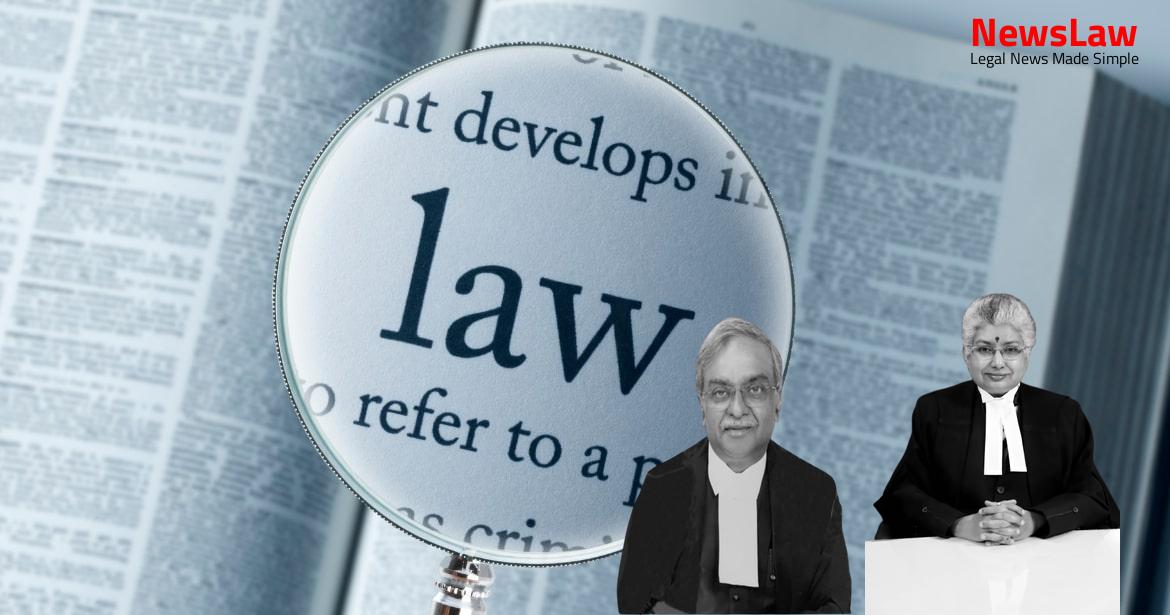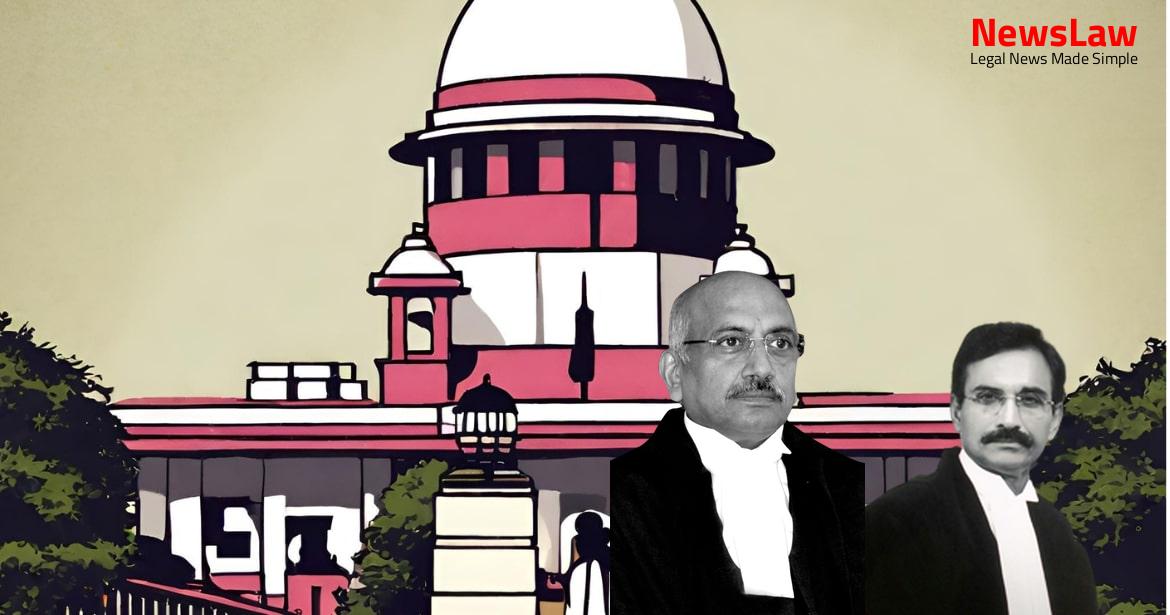Delve into the legal nuances surrounding the interpretation of Section 33(2)(b) of the Industrial Disputes Act in a recent court judgment. The court’s analysis sheds light on the application of this crucial section in balancing the rights of employers and employees during industrial disputes. Stay informed about the evolving legal landscape governing industrial relations.
Facts
- Management initially suspended forty-seven workmen and issued a charge memo on 20 August 2002.
- A reply was received on 30 August 2002.
- Domestic enquiry commenced, and an order of dismissal was issued on 16 November 2002.
- Workmen raised an industrial dispute on 4 July 2002 and began a stay-in strike on 31 July 2002.
- Another dispute was raised on 1 August 2002.
- An application was filed on 16 November 2002 for the grant of approval to dismiss thirty-one workmen.
- Single Judge upheld the Assistant Commissioner of Labour’s order dated 31 March 2003, which rejected the management’s application under Section 33(2)(b).
- High Court dismissed the Letters Patent Appeal by the management.
- Management filed an application for approval before the Assistant Commissioner of Labour under Section 33(2)(b).
- Assistant Commissioner of Labour held that prior approval before termination was necessary due to pending conciliation proceedings.
- Appellant’s establishment was in Dindigul District.
- Appeal arises from a judgment of the High Court dated 14 March 2018.
- Appellant closed its unit on 8 July 2009.
- Management’s application for approval under Section 33(2)(b) was rejected.
- Order of Single Judge appealed before Division Bench
- Division Bench affirmed judgment and directed appellant to pay 50% of back wages, closure compensation, and interest
- Single Judge held prior approval necessary due to pending conciliation proceedings
Also Read: Electoral Malpractices in Mayor Election
Arguments
- The Assistant Commissioner of Labour erred in rejecting the application for approval on the ground that prior approval under Section 33(1)(b) was required.
- The termination of the workmen for misconduct must be held to be connected with the dispute.
- Section 33(1)(b) postulates a requirement of prior approval, while Section 33(2)(b) requires compliance with conditions including payment of one month’s salary and filing an application to the authority for approval of the action taken by the employer.
- The provisions of Section 33(1)(b) are attracted when the action of the management is in respect of any misconduct connected with the dispute.
- In the absence of prior approval, the termination was considered unlawful.
Also Read: Balancing Power and Transparency: Electoral Bonds Struck Down, Disclosure Mandated
Analysis
- Section 33(1) of the Industrial Disputes Act prohibits an employer from altering the conditions of service or punishing a workman for misconduct connected with the dispute during the pendency of conciliation proceedings without prior written permission from the authority.
- Section 33(2) allows for alterations in conditions of service or punishment of a workman for misconduct not connected with the dispute during the proceedings.
- The key distinction between the two sections is whether the proposed action by the employer is connected to the dispute, which must be determined based on the facts of each case.
- Section 33 of the Industrial Disputes Act underwent changes through amendments in 1950 and 1956 to balance the rights of employers and employees during industrial disputes.
- The purpose of Section 33 was to maintain the status quo during industrial dispute proceedings before a tribunal.
- The amendments in 1956 aimed to restore the employer’s right to take punitive action under specified circumstances.
- The distinction between sub-Section (1) and sub-Section (2) of Section 33 is crucial in determining the applicability of the law.
- The judgement discusses how misconduct leading to dismissal may or may not be connected to the ongoing dispute, impacting the application of Section 33(2)(b) of the ID Act.
- The need for discipline in industry was acknowledged by Parliament, leading to the amendment of Section 33 in 1956 to provide employers with the necessary authority.
- The monthly salary for workmen in the factory should be paid before the 7th of the month.
- Section 33(2)(b) allows the employer to initiate disciplinary action not connected to the industrial dispute while imposing safeguards to prevent victimization of workmen.
- The order of the Assistant Commissioner of Labour in this case mentions a dispute raised on 4th July 2002 by workmen under Section 2(k) with specific demands.
- The order of the Assistant Commissioner of Labour was contrary to law
- Error on the part of the Single Judge and the Division Bench in affirming the order
- There was compliance of the provisions of Section 33(2)(b)
- No finding to the contrary regarding compliance
Also Read: Recall of Resolution Plan Approval: Legal Analysis
Decision
- Pending application disposed of.
- Appeal allowed and impugned judgment set aside.
- Application for approval under Section 33(2)(b) of the ID Act approved.
- Appeal rejected against specific respondents.
- Entitlement of legal representatives of deceased workmen to benefits clarified.
- No order as to costs.
Case Title: SRI DORAIRAJ SPINTEX Vs. R. CHITTIBABU (2021 INSC 527)
Case Number: C.A. No.-005897-005897 / 2021



